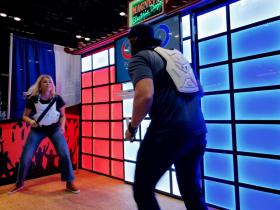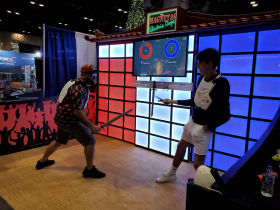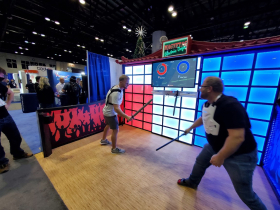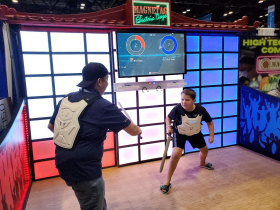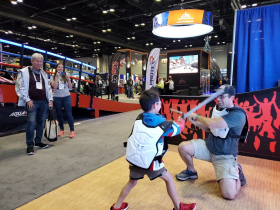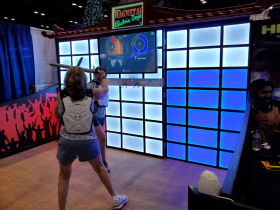Milwaukee Entrepreneurs Continue To Grow MagneTag
MagneTag uses magnetized foam swords, arrows and other projectiles to enable high-tech fun.
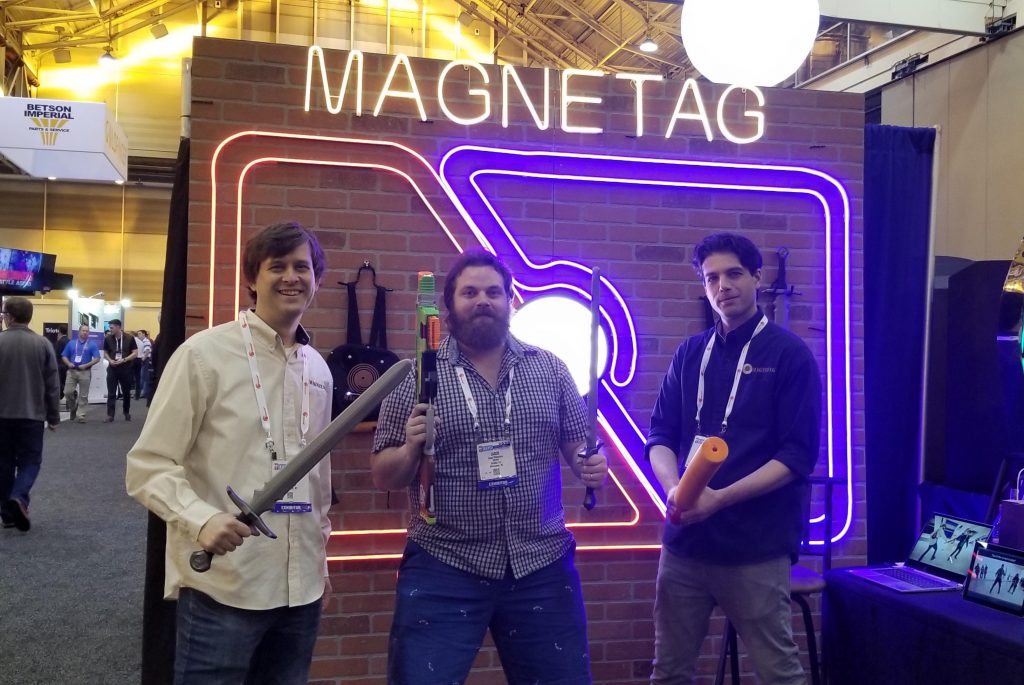
From left to right, Chris Wilson, Jason Hilleshiem and Adam Cohen presenting MagneTag. Photo courtesy of Adam Cohen.
Entrepreneur Adam Cohen had a lot of Nerf gun and paintball battles with his friends growing up. But he often suspected his friends were cheating, and it was hard to tell by the time they were all covered in paint.
That hunch ultimately inspired an idea: an electronic version that tracks who had been hit.
Cohen said initially it was a lot of making prototypes and struggling to find something that worked. He did not have much experience with making electronics. He spent a lot of time at the Milwaukee Makerspace in Bay View, eventually getting assistance from Jason Hilleshiem.
Hilleshiem helped Cohen turn his bare-bones prototype into something “halfway decent,” Cohen joked in an interview. He’s previously called Hillsheim a guy who can “get sh*t done.”
“Once we started making prototypes, we realized that electronic sword battles were a lot more fun, and you didn’t need to go pick up a million Nerf darts,” said Cohen.
Once Cohen established a reliable prototype, he launched a Kickstarter in 2018 to get the word out. Ultimately, MGA Entertainment became interested and licensed the technology for retail distribution.
Now, Dojo Battle, MGA Entertainment’s retail version of MagneTag, is sold in Target, Amazon and several other popular retailers.
MGA recently released a new version of Dojo Battle that offers a sword that also can shoot laser blasts. Cohen said it allows for both short and long-ranged combat.
Cohen, Hillesheim and Chris Wilson — the software guru on the team — continue to work on getting the product into entertainment centers and theme parks.
Want to try it out? Bounce Milwaukee has had MagneTag equipment available for years. You can also play with the technology at the upcoming Midwest Gaming Classic at the Wisconsin Center.
However, COVID-19 has made adoption difficult. Even as they have traveled to trade shows and developed positive connections, sales for theme parks and entertainment centers often take a long time, varying from 12 to 18 months, Wilson said.
Wilson said they were generating momentum prior to the pandemic, and now, it feels like they are starting over from scratch. But the team has continued to improve the product.
Hilleshiem said they were able to go to some trade shows in 2021 to advertise the product and saw some interest. He said the hope is to scale things up further in 2022.
Photos
If you think stories like this are important, become a member of Urban Milwaukee and help support real, independent journalism. Plus you get some cool added benefits.


